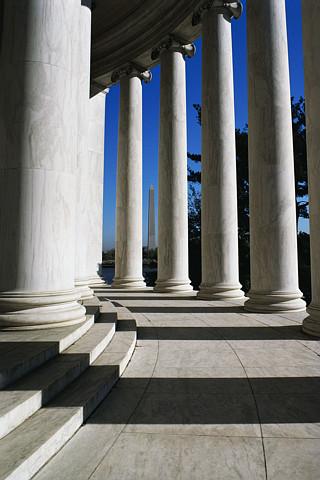Recent USCIS Developments on NIW





Overview
In the aftermath of the Great Recession, U.S. Citizenship and Immigration Services (USCIS) responded to a weakened job market and slow economic growth by tightening nearly all employment-based visa categories. Take one example: H-1B visas Immigration lawyers around the country are reporting Requests for Evidence (RFEs) even for routine H-1B cases.
This USCIS crackdown has spilled over to the National Interest Waiver (NIW) category. Many attorneys and law firms are no longer enjoying the same frequency of success with these cases; what often worked in the past is not as effective today. USCIS is now requiring NIW applicants to qualify under a stricter and more demanding standard. However, our firm has kept apprised of evolving USCIS procedures, and we have modified our practice as needed to meet new standards.
Discussion
Filing a successful NIW application is more difficult now that just a few years ago. We have broken down our observations of current USCIS adjudication practices regarding NIWs below.
- Subjective Standard versus Objective Standard
In the past, subjective criteria often had a significant influence in USCIS decision-making in NIW petitions (e.g., testimonials in the form of recommendation letters). But now, objective criteria are more important from USCIS’s perspective. This is not to say that carefully prepared letters of recommendation, ideally from independent references who know of the petitioner’s exceptional ability and achievements through publications, are no longer important. But objective criteria showing recognition of one’s work and influence on the field as a whole are now more important, as discussed below.
- Standard Outlined by USCIS in Requests for Evidence (RFEs) and Denial Notices
We can learn about current USCIS standards from the language in RFEs and Denials.
Requests for Evidence
Even the best-prepared, strongest cases may result in an RFE. USCIS often issues generic RFEs that do not identify specific issues the petitioner can readily rectify; these are time-consuming to respond to and often a source of frustration for the petitioner. Such RFEs often merely repeat statutory language and state that the petitioner has not met the burden of proof. Below is an excerpt from from a recent NIW RFE:
“Please submit copies of any published articles by other researchers citing or otherwise recognizing your research and/or contributions…. It is not necessary to submit articles that are self-referencing; i.e. written by you or your collaborators... Please submit documentary evidence to establish that you have a past record of specific prior achievement that justifies projections of future benefit to the national interest. You must establish, in some capacity, your ability to serve the national interest to a substantially greater extent than the majority of your peers. You must demonstrate, to some degree, your influence on your field of employment as a whole.”
We can take away three points from this recent NIW RFE, as they are applicable to all NIW cases.
-
The importance of independent citations and/or a large number of downloads. This, of course, can only be shown if your work has actually been cited independently. If you do not have citations, you can show a download count of your papers or programs by other researchers. According to USCIS officers, a large number of independent citations or downloads of your work proves that your work has had a significant impact on your field and therefore serves U.S. interests.
-
The importance of serving the national interest to a substantially greater extent than the majority of your peers. This can be shown by strong letters of recommendation testifying about an applicant’s achievements compared to those lesser ones of his or her professional peers by providing specific examples of the applicant’s unmatched accolades.
-
The importance of an applicant’s influence on the field as a whole. This can be shown by citations or commercialization of patents. It can also be shown by others’ use of the petitioner’s work, which will be expanded on in letters of recommendation. Consider these hypotheticals to illustrate this point: a U.S. Department of Agriculture (USDA) scientist discusses how invaluable your research has been for USDA; or two professors who have never met you can talk about how your groundbreaking work influenced their published research; or an industry scientist at Monsanto can detail how and why the company adopted your pioneering research techniques throughout California and Texas.
The language in denial notices similarly illuminates USCIS’s changing standards and expectations. Of course, just like RFEs, denials can be arbitrary. One USCIS officer may deny a case that other officers would have granted. Nevertheless, experienced immigration attorneys can identify certain patterns in denial notices. After all, an NIW petition with 15 first-authored publications and 130 independent citations has a higher chance of approval than an NIW petition with 2 second-authored publications and 8 independent citations. Below is an excerpt from a denial notice from a case with 8 first-authored papers and 1 second-authored paper, but only 5 citations and recommendation letters that did not speak enough about actual past achievements:
“It must be noted that, while the national interest waiver hinges on prospective national benefit, it clearly must be established that the alien’s past record justifies projections of future benefit to the national interest. The petitioner’s subjective assurance that the alien will, in the future, serve the national interest cannot suffice to establish prospective national benefit.”
In other words, the emphasis in a successful NIW petition must be on actual past achievements, rather than speculative future achievements. USCIS judges a person’s capacity to contribute to the national interest in the future based on past achievements, not speculative claims about future potential. Thus, recommendation letters should focus on substantial accomplishments and influence on the field that have already occurred rather than future anticipated benefits. As the same USCIS denial notice stated, “The petitioner must demonstrate a past history of achievement with some degree of influence on the field as a whole.”
In the denial, USCIS additionally faulted the recommendation letters for not providing “any examples of specific resources that they have adopted or expressed interest in adopting the [petitioner’s] methodologies.” The notice added that, “Although the petitioner’s research has helped in furthering current research projects, it has not been established this research has made a significant impact beyond the scope of a particular project.”
Sometimes, even the quantity of citations does not carry much weight, as the denial notice added: “The petitioner’s publication and citation history is not indicative of a significant influence within the field…. In order to establish eligibility, the petitioner must demonstrate that he already has a track record with some degree of influence on the field as a whole.” [emphasis added]
In other words, a large number of independent citations is clearly helpful, but the relationship between the larger field and those citations is abundantly more important. In the absence of such evidence, alternative sources of influence must be found to convincingly demonstrate some degree of influence over the field as a whole.
- Location of Filing
All NIW petitions are currently adjudicated at either the Nebraska Service Center or Texas Service Center. Where a petition is adjudicated is determined by the residence of the applicant; our firm prefers to file at the Texas Service Center since we have found their standards more flexible and thus better for applicants. If an applicant lives outside of the Texas Service Center’s jurisdiction (for example, petitioners applying from abroad), we can still e-file the application, which then gets sent to the Texas Service Center. However, USCIS can transfer cases from one service center to another, including e-filed cases. Thus, while strategy with respect to filing is important, an objectively strong case will naturally have a better chance of approval than a weak case, regardless with which service center the case is filed.
Conclusion
Over the past several years, we’ve been able to glean certain trends in the evolving way USCIS has adjudicated NIW petitions. Officers are tending to focus on and request evidence that includes:
- a record of specific past achievements, rather than a general future projection;
- many independent citations;
- a large number of downloads of papers or programs;
- commercial utilizations of one’s patent or work; and/or
- any objective and documented achievements that show one’s achievements are above one’s peers.
This USCIS shift in the direction of prioritizing what we’re referring to as an objective standard is troubling. Not only does it lead to additional work that makes NIW petitions more time-consuming and nerve-wracking for NIW applicants, but it has also tended to result in more denials. Therefore, it is more important than ever to find an experienced law firm with a strong background in filing NIWs to assist you in your NIW petition. Zhang & Associates has filed thousands of NIW applications over the last two decades, and all of our attorneys are acutely attentive to changes in USCIS procedure and quick to adapt to new standards in order to better serve our clients.
The NIW process is complex and, at times, a bit convoluted. We recommend that you seek the assistance of experienced immigration attorneys. Over the past two decades, we have successfully represented thousands of clients in their NIW cases. If you would like to contact us, please call us at (713) 771-8433 or visit us at one of our seven locations. You can also send us an e-mail at info@hooyou.com. Our superior attorneys will ensure that you receive only the highest quality of service.
Read the USCIS ruling (Matter of Dhanasar) governing NIW here. And for more detailed information about the National Interest Waiver, including minimum requirements and USCIS policies, please click on the relevant links on this page:
- National Interest Waiver (NIW)
- Quick Start Guide to the National Interest Waiver
- New NIW Standards: Dhanasar
- Dhanasar vs. NYSDOT
- Advanced Degree Professional vs. Exceptional Ability
- NIW Application Process
- NIW Supporting Evidence
- Letters of Recommendation
- NIW Documentation
- Meeting the “National Interest” Standard
- NIW Services We Provide
- Frequently Asked Questions about NIWs
- Recent USCIS Developments on NIW Adjudication
- Historical NIW Requirements and Case Analyses
- NIW Appeals and Motions
- Physician National Interest Waivers
- NIW Client Testimonials
- Attorney's Fees
- Articles & News on NIW
Updated 03/23/17




